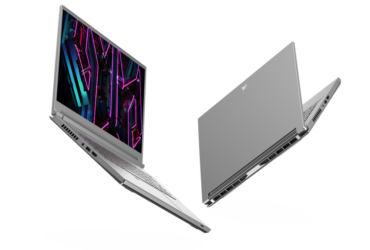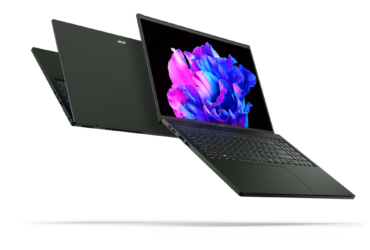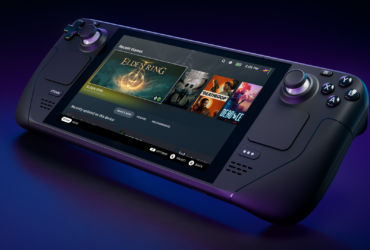National Instruments (“NI”), a solutions provider of automated test equipment and virtual instrumentation software including graphical system design tools for engineers and scientists, kicked off its premier Graphical System Design Summit (GSD Summit 2013) on 3 October 2013 in Petaling Jaya, Malaysia. GSD Summit 2013 is the premier conference targeted at scientists, engineers, educators, researchers and industry partners and will cover 11 cities across six Southeast Asian countries from 3 October to 10 December 2013.
New products and solutions
National Instruments showcased a suite of new products and solutions including the new cRIO-9068 software-designed controller and NI LabVIEW 2013. The new cRIO-9068 software-designed controller delivers faster performance and greater flexibility, yet maintains full NI LabVIEW and I/O compatibility with the CompactRIO platform.
NI LabVIEW has been updated to provide numerous development environment enhancements and deployment tools. The software also includes an ecosystem of examples, training materials, add-ons, helping users increase productivity and bring innovation to greater heights.
In a nutshell, NI LabVIEW is a programming environment used by engineers and scientists to tackle both simple and complex challenges across a variety of industries. LabVIEW’s graphical approach to programming makes it an ideal tool for integrating the software into a wide range of courses and applications. It removes the need for individuals and companies to constantly learn and relearn computer science, and allows them to concentrate on their domain expertise.
The US-company also unveiled a new compact and student-friendly NI myRIO. NI myRIO is based on the same technology as NI CompactTRIO and integrated with the NI LabVIEW platform, to help educators and students accelerate the learning experience through developing real world projects with an integrated platform.
As an example, LEGO’s MINDSTROMS NXT-G robotics blocks are essentially the same platform as the professional-level NI LabVIEW used by scientists and engineers to design, test and build vehicles, complex electronics and more.

National Instruments in Malaysia
I caught up with Chandran Nair, Managing Director, National Instruments Southeast Asia; and Eloisha Acha, Planet NI Program Director and Co-Chair of Planet NI Board of Advisors, in an exclusive one-to-one interview during the GSD Summit 2013, to find out more about National Instruments’ presence and its activities in Malaysia.
NI started its foothold in Malaysia twelve years ago with an office in Petaling Jaya, and in 2010 invested over US$80 million to build a R&D and manufacturing facility in Bayan Lepas, Penang. The facility in Penang is the largest NI R&D centre outside of the US. NI currently employs over 800 staff divided between its two locations and expects to expand its Malaysian workforce to between 1,500-1,600 by 2015. More than half of the workforce will be engineers.
According to Chandran, revenue in ASEAN grew to over 30% of their business, and therefore a decision was made to setup presence in the region. Subsequently, National Instruments chose Malaysia over other countries because of the easily available manpower, good infrastructure and ecosystem of suppliers to support their products.
Some key customers using NI software and hardware platforms in ASEAN include National University of Singapore, University of the Philippines, Penang Skills Development Center, and Sarawak Energy.
Planet NI – fuel for SMEs
Chandran added that NI has an initiative called Planet NI – a national instruments program which has the key objective to make tools and training more accessible and affordable for small and medium enterprises (SMEs) all over the world. In Malaysia, NI has collaborated with the Malaysian government and setup a prototyping lab at Technology Park Malaysia (TPM), specially for Malaysian SMEs. The prototyping lab allows for SMEs to create prototypes and proof-of-concepts, and therefore reducing risks both financially and technologically.
Accessibility and affordability is especially critical in emerging economies where startups and SMEs may not have access to capital, talent or technology required to develop their products.

Eloisha later added that there are two ways SMEs can participate in Planet NI. Firstly, companies can approach NI directly. Alternately, companies can approach partner NGOs, universities or Government agencies like SMECorp or MDeC that run SME programs.
As of December 2012, Planet NI has supported over 250 SMEs, and more than 15,000 engineers and students in emerging countries.
GSD Summit 2013 continues
The full list of cities and dates
- Malaysia: Petaling Jaya, 3 October; Penang, 9 October; Johor Bahru, 16 October
- Singapore: 18 October
- Thailand: 6 November
- Indonesia: 13 November
- Philippines: Manila, 20 November; Cebu, 27 November
- Vietnam: Ho Chi Minh, 3 December; Hano, 10 December
GSD Summit 2013 features full-day interactive technical sessions, hands-on workshops and exhibition, as well as presentations and product demonstrations.
For more information on GSD Summit 2013, visit http://singapore.ni.com/gsdsummits













